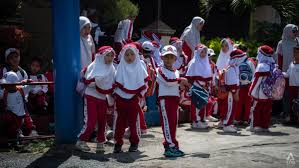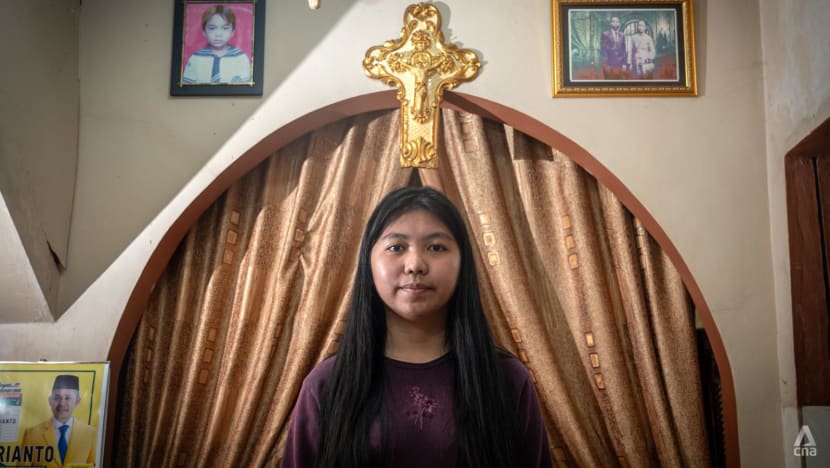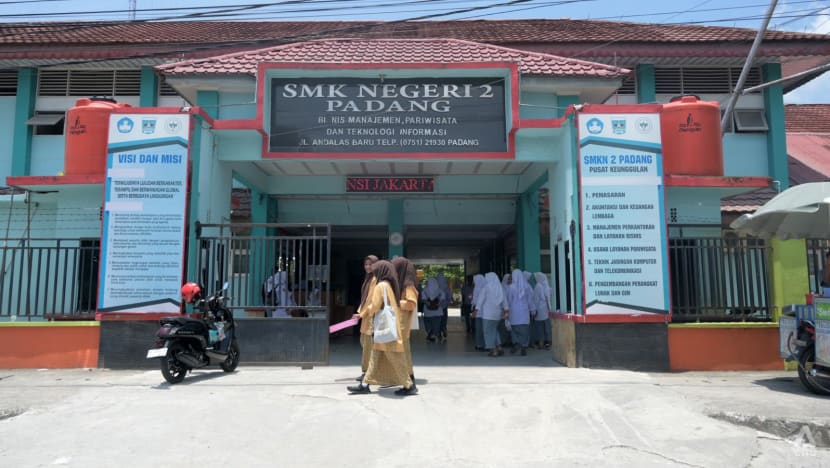Political Islam: Hijab rules and segregated pools – religion reshapes social norms in Malaysia, Indonesia

“The problem is these people want to enact more laws to control us. Politicians allow this religious sort of morality to be imposed on us and we have to follow them. The governments are putting these laws in place. So, it is part of political Islam”
(CNA) – It was supposed to be an exciting day for Ms Jenny Hia. After six months of studying remotely because of the COVID-19 pandemic, the teenager finally set foot at Public Vocational School Number 2 in Indonesia’s Padang City in January 2021.
She was hoping she could meet new friends, but all she got were awkward stares from schoolmates and teachers.
The Christian teenager, then 16, was the only girl in school who did not wear the hijab, a Muslim headscarf meant to conceal a woman’s hair and neck and a mandatory garment for all female students at the school.
Over the next few days, Ms Hia was summoned by various school officials about her refusal to wear the item. One teacher even brought four Christian students, all of whom had decided to comply with the public school’s regulation, to put pressure on her to do the same.
But Ms Hia remained steadfast.
“Public schools are supposed to be open to people of all religions. The way we dress should not be according to one religion. Everyone should be able to dress however they want,” she said.

Her family took the case to Indonesia’s National Commission on Human Rights, putting a much needed spotlight on the plight of religious minorities in West Sumatra.
The case sparked a nationwide debate so fierce, three Indonesian ministries – the ministry of education, the ministry of religion and the ministry of home affairs – issued a joint decree on Feb 3, 2021 barring schools and regional governments from requiring students and teachers to wear “attributes of a specific religion”.
But three months after it was enacted, the Indonesian Supreme Court repealed the decree amid pressure from conservative Muslim groups and the customary council of the Minangkabau people, the biggest ethnic group in West Sumatra.
Three years on, Ms Hia’s case has faded from the limelight. The Supreme Court decision meant that the requirement for all female students to wear the hijab in West Sumatra, as well as other Indonesian provinces, is here to stay.

Her case is just one example of how increasing restrictions in the name of religion are upheaving social norms and liberties in Indonesia and neighbouring Malaysia.
Discrimination towards religious minorities has been on the rise in homogenous Indonesian provinces such as West Sumatra, where 97 per cent of the province’s 5.5 million inhabitants are Muslims.
“West Sumatra has become an icon of conservatism,” Mr Bonar Tigor Naipospos, deputy chairman of not-for-profit organisation Setara Institute for Democracy and Peace, told CNA.
To woo Muslim voters, politicians and public officials have been issuing Syariah-inspired regulations and decrees as well as discriminatory policies and programmes.
In 2005, then-Padang mayor Fauzi Bahar issued a decree mandating all Muslim students in public schools wear Islamic outfits. The same decree also required non-Muslims to “adjust their outfits” to the requirement but left no further explanation.
Schools were left to decide what the provision for non-Muslim students meant. Nearly all public schools in Padang interpreted the decree as requiring all female students, regardless of their faith, to wear the hijab.
“Spaces for non-Muslims to express their non-Muslim identities have indirectly become limited,” said Mr Sudarto, the founder of West Sumatra-based interfaith group, Inter-Community Study Group (Pusaka), adding that it has been happening gradually over decades.

